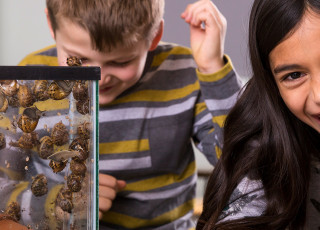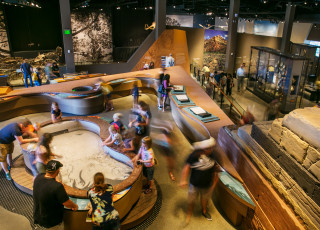Avoid Learning Loss This Summer: Three Tips to Keep Your Child Engaged
By Olivia Barney
When the school year ends, the summer season brings promise of fun family bonding and warm, sunny adventures. It’s a season kids look forward to for many fun reasons, but also one that can affect their readiness for a return to school in the fall. "Learning loss" is the measurable decline in academic knowledge or skills typically resulting from extended interruptions in education, inadequate instruction, or lack of practice. It can also be labelled the "summer slide" in regard to summer break. Thankfully, thoughtfully planned activities can prevent learning loss over the summer holiday and prepare young minds for advancement into their next grade level.
The good news is parents don’t have to choose between giving their kids a fun, restful summer and keeping their minds sharp during their break from school. With the right balance of activities, kids can get the best of both worlds. Keep reading for three tips to keep children engaged this summer through play-based learning.
What is play-based learning?
Play-based learning allows a child to lead the way through the discovery process! Through playing and participating in hands-on activities, the child engages with educational concepts at their own pace and through exploration of their personal interests. For example, if a child is interested in animals, a parent can encourage their exploration of this interest by visiting a zoo, bird watching, or checking out library books on different animals.
The child might be encouraged to combine attributes of their favorite animals and paint a picture of a new animal — one that they’ve imagined. As a follow-up, a parent can ask them to tell stories about it. Where does it live? What does it eat? Questions that will spark imagination and bring life to their painting.
By focusing on what the child is interested in then engaging them in entertaining, hands-on activities, a parent will reap all the benefits of having fun without sacrificing their curious nature to the monotony of all-day television.
Here are those three tips for introducing play-based learning.
Get Outside and Get Curious
One of the best ways to explore new ideas is by spending consistent time outside of the house — exposing a child to new places, giving them the opportunity to explore, and showing them others' excitement for the world outside. Whether this time outside is spent walking around historic buildings or visiting a local park, the excursion will give a child a change of scenery and may promote questions about science, history, or literature that can be explored together.
One affordable resource to guide outdoor exploration in Utah is “Wild Wasatch Front,” a guidebook created specifically for residents along Utah's Wasatch Front and the surrounding region! In addition to interesting mini lessons on the relationship between natural and urban settings, the book also features an identification guide for local species, and 21 field trips suggestions, all of which are free and close to home. The book can be purchased at the NHMU Museum Store, in local bookshops, or on Amazon.
Register for Summer Camps
If a child does better with a more consistent daily schedule, parents might consider registering them for a variety of summer camp programs. These programs provide a week of structured learning, including sensory play activities and opportunities for deeper exploration into the topics a child loves. Whether they are hoping to explore the mysteries of outer space or the fascinating history of dinosaurs, there are summer camp options for a wide variety of interests and grade levels.
NHMU’s award-winning Summer Camps incorporate all the benefits of play learning with the expertise of scientists and educators. Children may attend a maximum of five camps per summer, helping both parents and children find that ideal balance of structured programming and restful vacation days. As most summer camp sessions fill quickly, we recommend checking camp availabilities and registering early. Parents can explore available Summer Camp sessions here.
Explore Community Resources
Another great way to incorporate play learning into a summer vacation is to get more involved within one's community. Utilizing community resources, like parks, public libraries, and city summer festivals, helps parents and their children better connect to friends and neighbors, and they’re fun for all age groups! Community can also offer volunteer opportunities, which is another family activity that helps kids build relationships and investigate the world with curiosity.
Museums also serve as community resources. By exploring exhibits on a variety of topics and taking advantage of free museum programming and sensory-friendly experiences, children get the opportunity to engage with topics interesting to them — allowing them to take the lead and set the pace on summertime learning. This summer, NHMU will explore the Mysteries of the Ice Ages with a cool new exhibition that will look into the animals and environment that dominated the earth for 80,000 years. Mysteries of the Ice Ages opens June 7, 2025, and guests can prebook tickets to the opening celebration here.
This summer, families don’t have to sacrifice fun for structure, schooling, or socialization. Everyone can experience it all by igniting a child’s curiosity and following their lead in exploring the wide, wonderful world around them. Through playing and participating in hands-on activities, parents can create cherished summer memories without worrying about learning loss or school preparation.




